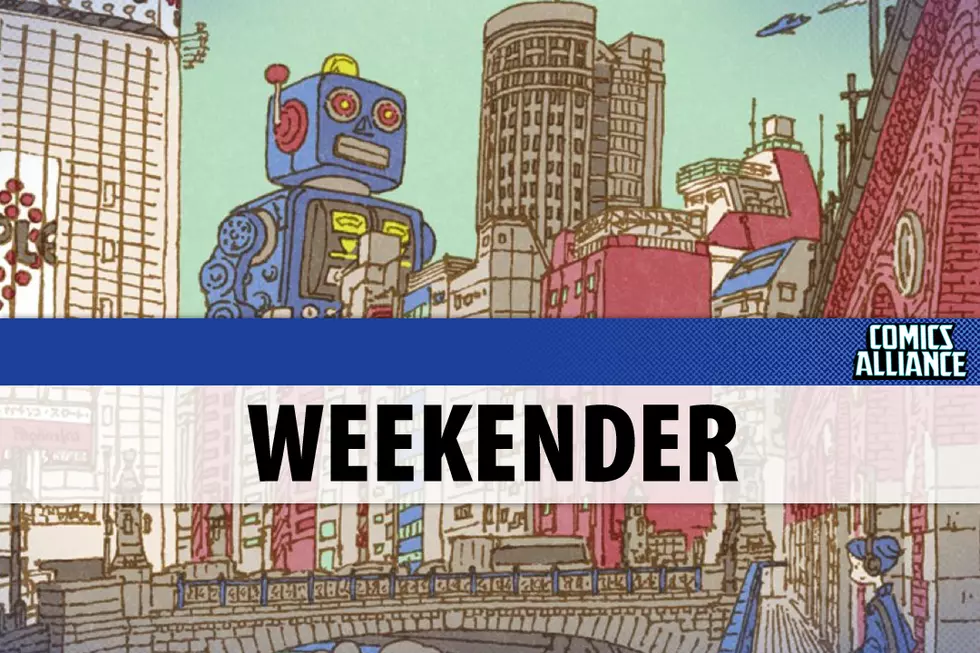
Leaping Low Blows: Seth Kushner Responds to Review Used as Tirade Against Comic Industry

For most authors, a review in the Wall Street Journal would be a great thing, creating interest in their book and telling a new audience what it was all about. For Christopher Irving and Seth Kushner, however, it proved to be a more dubious honor. Not only did the paper's review of their book, Leaping Tall Buildings, completely mis-credit the book's creators, it also used the review as an opportunity to launch an attack on the entire comic book industry. Now, Kushner has responded to the furore he was indirectly responsible for.The WSJ review, forebodingly entitled "Worst Comic Book Ever!" managed to credit Irving as the LTB editor instead of author, and leave Kushner's name out entirely. But that almost pales into insignificance compared with the rest of the review, in which writer Tim Marchman declared war on the contemporary comic book industry, complaining that "the people who produce superhero comics have given up on the mass audience, and it in turn has given up on them," and describing current superhero material as "clumsily drawn, poorly written and incomprehensible to anyone not steeped in years of arcane mythology." Specifically identified for criticism are Brian Michael Bendis, Joe Quesada, Grant Morrison and Dan Didio, whom Marchman calls "the men most responsible for the failure of the big publishers to take advantage of the public's obvious fascination with men in capes," although J. Michael Straczynski also gets slammed, being characterized as a "former He-Man scripter."
Marvel editor-in-chief Axel Alonso, when asked about the criticisms of his company in the piece, said that "It wasn't a book review, it was an editorial about the comic book industry filled with sloppy business analysis and cultural commentary."
Kushner's response to the piece, however, is surprisingly even-handed. "I do agree with some things Marchman says but he often doesn't make his points well," he writes, explaining that while some superhero comics are as Marchman described them, "I believe there's as much a mix of mediocrity and greatness in mainstream comics as there is on TV and in movies. People like me, who are fans, learn to seek out the stuff that's good." A lot of that good stuff, he argues, comes from smaller publishers than Marchman's seeming targets of derision, Marvel and DC. "A few smart creators have managed to independently create a handful of characters who've made it past comics and onto t-shirts, toy aisles and movie screens," he argues. "Every month independent-minded creators are trying their best to catch lightning in a bottle."
Ultimately agreeing with his co-author Irving -- who is quoted as saying "It's not really my place, as the book's writer, to review [the WSJ] review" -- Kushner does nonetheless point at the good that has come from Marchman's vitriol:
I was happy for a good review in a major media outlet, regardless of the errors... The saying, "any press is good press," applies here in relation to my book. In the end, Marchman's controversial article got people talking, which is always a good thing, and though it barely mentions the book, we seem to have benefited from all the chatter. Leaping Tall Buildings jumped approximately 20,000 places on Amazon after the article ran and several stores reported selling out of their copies.
Apparently, controversy still sells... even if that wasn't exactly what the book's creators were looking for in the first place.
More From ComicsAlliance









